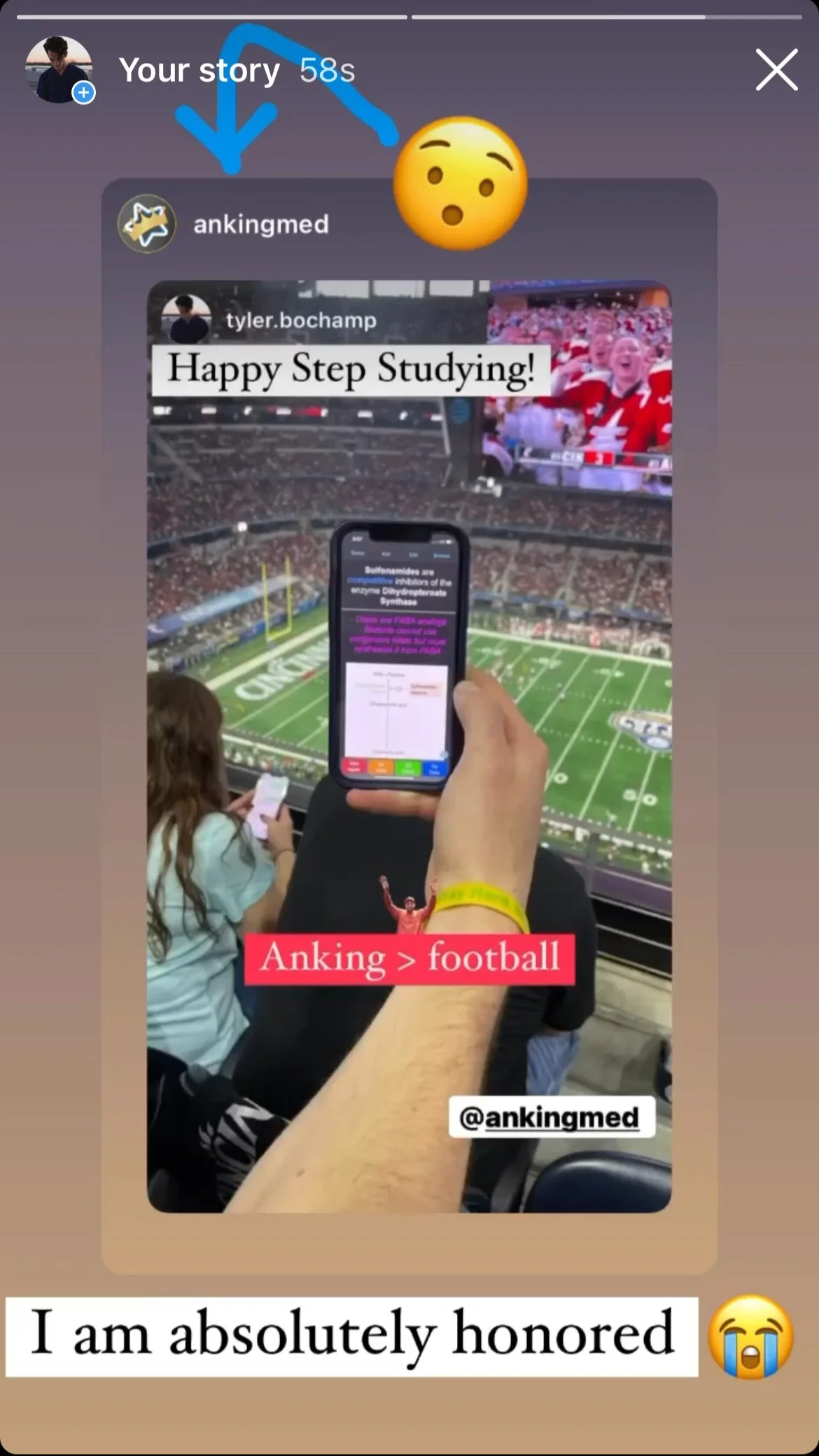Slap-a Da Space: The Anki Decision
How did you study in college? Buy a few folders, mix some hand-written notes in? Maybe you even had a tablet to keep everything in one place, but what I can almost guarantee is for at least one class you found yourself falling back on the good ole’ flashcard system. I know Quizlet was the go-to for me then, but if I could go back I’d toss that aside faster than Hermoine raising her hand in class. Enter the new standard flashcards: Anki.
I may be preaching to the choir here, but on the off chance you haven’t heard of it yet, Anki is a spaced repetition virtual flashcard app designed to supercharge long-term retention. I’m sure you’ve heard the expression “Med School is like drinking water from a fire hydrant.” Not much of the actual information in med school is that conceptually hard (until you get to cardiopulm, in which it’s like reading elvish. I swear they just keep making up rules at this point), however the amount of info you’ve got to keep at the tip of your tongue can be daunting. I once sat down and did the math, and it came out to be about a week in med school was sometimes equivalent to a semester of college in terms of raw material. Yeah, you read that right. So how in the world is one supposed to keep up with that after a month, a year?
How Anki differs from your other flashcard systems is that it actually remembers how well you remember. The name of the game is “spaced repetition.” Each card is tied to a time-stamp. The more you get a card right, the longer the interval between now and the next time you’ll see it. The more you get one wrong, the sooner you’ll be faced with it again. This comes out to not actually seeing every card every day, but rather focusing each day on the ones you need the most work on and sprinkling in the others over time. Pretty cool, right? Plus, if you’re a fan of “I Love You, Man” like me you’re in luck, because trade in a bass for your laptop and like Paul Rudd, you’ll be slappin da spacebar all night cranking through cards.
A crucial point: Anki is for the dedicated. What I mean to say is, this whole system only works if you’re willing to check in with it every day. The algorithm isn’t designed for a quick binge and purge, but rather a slow burn. Now, no one’s perfect, I’ve definitely had my day or two where I either forgot or had too much other work to do to give Anki the spotlight. But all that does is make the next day harder as cards accumulate like water behind a dam. Seriously evaluate your study methods and what works for you before starting, and make sure you’re willing to set aside time every day to let Anki serve you best.
But Tyler, if what you’re saying is true about the sheer load of content med school piles on you, how do you expect me to have the time to make all these flashcards and do them? Well, thank you for the segue, nameless person I just made up. If you want to make your own cards, all the power to you. But if you’re feeling overwhelmed, don’t worry. Anking has your back. Anking is the ultimate premade study deck that every Anki adventurer should check out. They’ve compiled notes and helpful tips in their cards from across all popular study resources: Amboss, Boards and Beyond, Sketchy, and more (I’ll be doing a complete review of popular study resources in a later post, stay tuned!). Check out all Anking has to offer here!
Anking isn’t the only amazing add-on to this experience. Like Amboss? There’s a miracle add-on that automatically searches keywords in your cards and brings up pictures and summaries when you hover your cursor over them, helping make even more connections. Like to do cards on the go? Check out the mobile app that lets you sync your decks across all devices, so you’re never too far away from being able to get a quick review in. Look, I’m not paid by Anki. I mean, I wish I were, and if you know anybody that can make that happen tell them to email ndmdproductionsblo — I’m getting off-track. The point is that Anki was a God-send for me and my study methods starting out Med school. And while it was rough to start, it’s saved me so much time and energy in the long-run. Maybe it’s not for you, maybe it is. But I promise you that giving it a try is worth it. Go ahead if you haven’t already, download Anki and open yourself up to the miracle of spaced repetition. And don’t freak out when you suddenly find your brain on hyperdrive.
Follow Tyler on Instagram!
Don’t miss a single post by subscribing to the NDMD blog here!
Is there something you’d like us to talk about? Send in your suggestions for future blogs!


